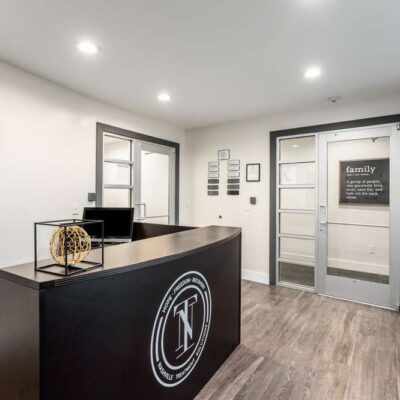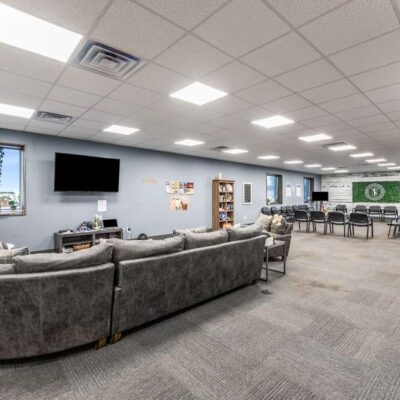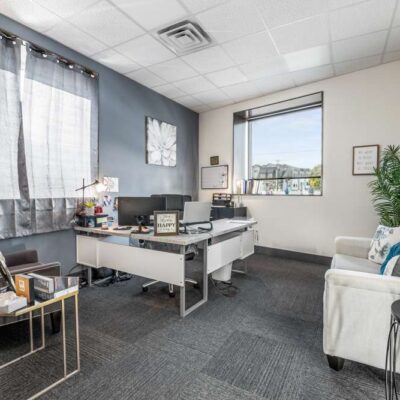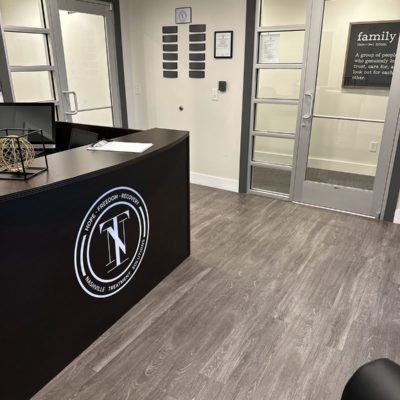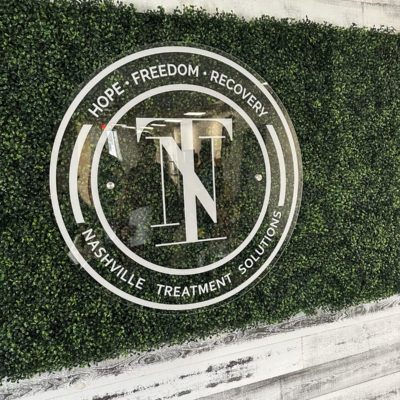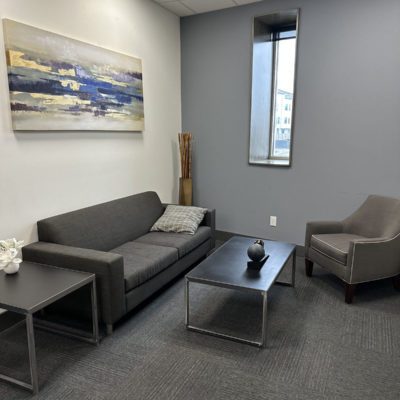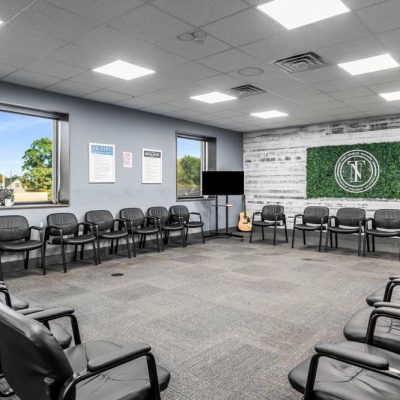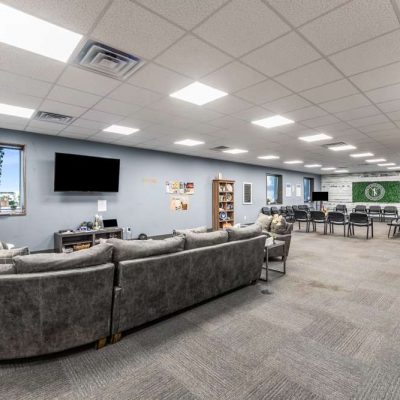Obsessive-Compulsive Disorder (OCD) Treatment in Nashville, TN
Living with Obsessive-Compulsive Disorder (OCD) can be daunting. Maybe you have anxious thoughts that you can’t quite get out of your head. Others can repeat an action over and over again to self-soothe. OCD can have life-impacting effects that often turn into depression, anxiety, substance abuse, and other mental health disorders.
If you or a loved one is struggling with Obsessive-Compulsive Disorder (OCD), finding the right treatment is crucial for healing and growth. At Nashville Treatment Solutions, we offer comprehensive, evidence-based OCD treatment in Nashville tailored to meet the needs of individuals struggling with OCD. Our award-winning team of experts is dedicated to helping you achieve long-term recovery and improved mental health.
You are not alone. You deserve to get help.
Nashville Treatment Solutions is an industry leader in addiction treatment. Our team of top medical experts specialize in dual diagnosis treatment and are committed to ensuring that each patient is treated as an individual. Call us today, we’re available 24/7.
What Is Obsessive-Compulsive Disorder? (OCD)
Obsessive-Compulsive Disorder characterized by the presence obsessions, compulsions, or both. OCD symptoms can be highly distressing and can significantly interfere with a person’s daily life, relationships, and overall well-being.
Obsessions
Obsessions are persistent, intrusive thoughts, or urges that cause significant anxiety or distress. These thoughts are often irrational and unwanted, but the person with OCD finds them difficult to ignore or suppress. Common obsessions include:
- Fear of Contamination: An intense fear of germs, dirt, or illness, leading to excessive cleaning or avoidance of certain situations.
- Fear of Harm: Worrying that something terrible will happen to oneself or loved ones, often leading to rituals or behaviors intended to prevent harm.
- Unwanted Sexual or Violent Thoughts: Disturbing thoughts or images involving inappropriate or harmful behavior, which cause intense guilt or shame.
- Religious or Moral Obsessions: Excessive concern with religious practices, moral behavior, or the fear of committing a sin or wrongdoing.
These obsessions are not just everyday worries; they are intrusive, repetitive, and often cause significant emotional turmoil. The person with OCD recognizes that these thoughts are irrational, but the anxiety they produce can feel overwhelming.
Compulsions
Compulsions are repetitive behaviors that a person with OCD feels driven to perform in response to an obsession or according to strict rules. These behaviors are intended to reduce the anxiety associated with the obsessions or to prevent a feared event or situation. However, the relief is usually temporary, and the compulsive behavior often becomes a cycle that is difficult to break. Common compulsions include:
- Cleaning and Washing: Excessive handwashing, cleaning surfaces, or showering to alleviate fears of contamination.
- Checking: Repeatedly checking doors, appliances, or other items to ensure they are secure or that nothing bad has happened.
- Counting: Counting objects, steps, or repeating certain actions a specific number of times to prevent something bad from occurring.
- Ordering and Arranging: Ensuring objects are arranged in a specific way or symmetry, often to relieve a sense of discomfort or fear of chaos.
- Mental Rituals: Engaging in silent prayers, repeating certain phrases, or mentally reviewing events to prevent harm or undo perceived mistakes.
Compulsions can consume a significant amount of time and energy, often leading to severe impairment in daily functioning. For example, someone with a fear of contamination might spend hours each day cleaning, making it difficult to maintain a job or relationships.
WHAT TO LOOK OUT FOR
The Cycle of OCD
OCD is often described as a vicious cycle: an obsession triggers anxiety, leading to a compulsion aimed at reducing that anxiety. However, the compulsion only provides temporary relief, and the obsession soon returns, often stronger than before. Over time, this cycle can become more entrenched, with the person spending increasing amounts of time on compulsive behaviors and avoiding situations that trigger their obsessions.
The Impact of OCD
The impact of OCD on a person’s life can be profound. It can affect their ability to work, study, maintain relationships, and engage in daily activities. Many people with OCD also experience feelings of shame, guilt, and isolation, particularly if they fear being judged for their symptoms. Without mental health treatment, OCD can lead to severe impairment and reduced quality of life.
How Do I Know I Need OCD Treatment?
Recognizing the need for OCD treatment can be challenging, as the symptoms can be complex and deeply ingrained. However, if your obsessive thoughts and compulsive behaviors are interfering with your daily life, relationships, work, or school, it may be time to seek professional help. Common signs that you may need OCD treatment include spending excessive time on rituals, experiencing significant distress due to your obsessions or compulsions, and finding it difficult to control or resist these behaviors.
OCD Treatment Programs in Nashville, TN
At Nashville Treatment Solutions, we understand that OCD often co-occurs with substance abuse, making dual diagnosis treatment essential for comprehensive care. We offer a range of programs to meet the varying needs of our clients:
Inpatient Residential Treatment: Residential rehab can provide a safe and structured environment for individuals with severe OCD symptoms. In this immersive setting, clients receive 24/7 support, intensive therapy, and access to a range of therapeutic modalities to address both OCD and any co-occurring disorders.
Partial Hospitalization Program (PHP): For those who need a high level of care but prefer to maintain some independence, our PHP program is considered an outpatient level of care, but offers intensive treatment during the day while allowing clients to return home in the evenings. This program is ideal for individuals who are transitioning from residential care or who require more support than outpatient care can provide.
Intensive Outpatient Program (IOP): Our IOP is designed for individuals who need a flexible treatment option that allows them to continue working or attending school. This program includes several therapy sessions per week, focusing on building coping skills, reducing symptoms, and preventing relapse. Admission into this level of care is determined on a case-by-case basis.
Dual Diagnosis Treatment: Because OCD often coexists with substance abuse, our dual diagnosis program addresses both conditions simultaneously. By treating both the mental health disorder and the substance use disorder, we provide a comprehensive approach that leads to better outcomes.
Our Approach To Treating OCD
At Nashville Treatment Solutions, we treat each client with empathy, respect, and compassion. Everybody’s journey to our facility is different, therefore, everyone’s most successful treatment approach will be different. Our approach to treating OCD is holistic and individualized, incorporating a variety of evidence-based therapies and modalities:
Psychiatry: Medication management is often an essential component of OCD treatment. Our experienced psychiatrists work closely with clients to find the right medication regimen that can help manage symptoms effectively.
Cognitive Behavioral Therapy (CBT): CBT is the gold standard for OCD treatment. It focuses on identifying and challenging irrational thoughts and beliefs, helping clients to reduce the frequency and intensity of obsessions and compulsions.
Dialectical Behavior Therapy (DBT): DBT helps clients manage intense emotions and develop healthy coping strategies. This therapy is particularly effective for individuals with OCD who also experience emotional dysregulation or co-occurring disorders.
Group Therapy: Group therapy provides a supportive environment where clients can share their experiences, learn from others, and practice new skills in a safe space. It fosters a sense of community and reduces the isolation often associated with OCD.
Individual Therapy: One-on-one therapy sessions allow clients to explore their specific challenges and work on personalized treatment goals. Our therapists use a variety of techniques to help clients gain insight and develop effective coping strategies.
Holistic Therapy: We believe in treating the whole person, not just the disorder. Our holistic therapies, including mindfulness, meditation, and yoga, help clients achieve mental, emotional, and physical balance, promoting overall well-being.
Why Nashville Treatment Solutions?
Choosing the right treatment center is a critical step in your journey to recovery. Finding rehab in Nashville can be overwhelming. At Nashville Treatment Solutions, many of us are in recovery ourselves. We know how to help. Our programs have helped hundreds for a multitude of reasons:
Accreditations: Our facility is fully accredited by leading national organizations, ensuring that we meet the highest standards of care and safety.
Central to Nashville: Conveniently located in the heart of Nashville, our center is easily accessible, providing a peaceful and supportive environment for healing.
Expert Team: Our treatment team comprises seasoned professionals who have successfully helped hundreds of individuals recover from OCD and co-occurring disorders. Their expertise and dedication make all the difference in our clients’ recovery journeys.
Begin OCD Treatment in Nashville, Tennessee Today
If you or a loved one is struggling with OCD, don’t wait to seek help. At Nashville Treatment Solutions, we’re here to guide you every step of the way. Verify your insurance today to learn more about our OCD treatment programs and start your journey toward recovery and a better quality of life.




